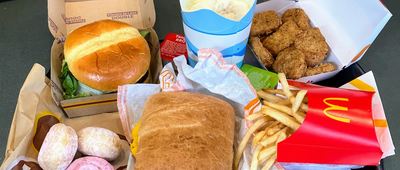SOMETHING TO EAT AT HOME
Eating out can be bad for your waistline and put a dent in your bank account. There's no doubt that heading to the nearest restaurant is more convenient and can be less stressful than getting a home-cooked meal on the table, but it should be saved as a treat, not a daily occurrence. Here are a few suggestions that can help you fight the urge to dine out.



















